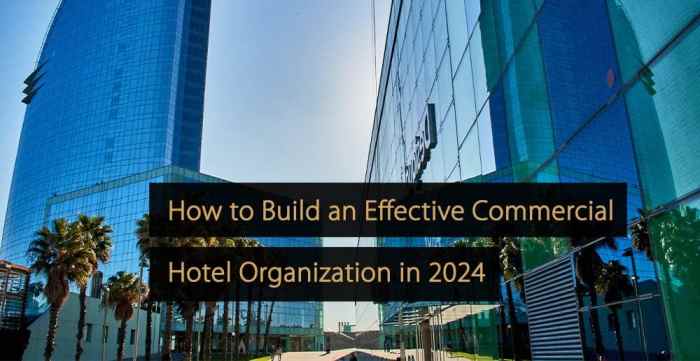What To Look For In A Business Hotel In 2025
What to Look for in a Business Hotel in 2025 is all about staying ahead of the curve when it comes to choosing accommodations that cater to the needs of modern business travelers. As we approach 2025, the landscape of business hotels is evolving rapidly, with a focus on technology, sustainability, and exceptional service becoming paramount. Whether you are traveling for a meeting, a conference, or networking events, understanding what features and amenities will define the ideal business hotel can make all the difference in your travel experience.
From high-speed internet and flexible meeting spaces to eco-friendly practices and innovative technologies, this article provides a comprehensive overview of the essential elements to consider when selecting a business hotel. With the rise of remote work and increasing emphasis on health and safety, it’s crucial to find accommodations that not only meet your operational needs but also align with your values and preferences.
Essential Features of Business Hotels in 2025
As the landscape of business travel evolves, so too do the expectations of travelers seeking accommodations that cater to their professional needs. In 2025, business hotels are expected to offer a range of essential features that enhance productivity, convenience, and comfort. These amenities go beyond the basics, creating a space where travelers can seamlessly blend work and relaxation.High-speed internet and tech-friendly workspaces are becoming non-negotiable aspects of business hotels.
With an increasing reliance on digital tools and remote collaboration, travelers prioritize reliable connectivity. A majority of business professionals indicate they would choose a hotel with superior internet access over cost when planning a trip. Tech-friendly workspaces equipped with charging stations, video conferencing capabilities, and ergonomic furniture are also vital, enabling guests to work efficiently from their rooms or designated areas within the hotel.
Top Amenities Expected in Business Hotels
Amenities that enhance the overall experience of business travelers are crucial for hotels aiming to attract this segment. In 2025, the following features are expected to be standard in business hotels:
- High-Speed Internet: Reliable and fast internet access is essential for seamless communication and efficient work operations.
- Tech-Friendly Workspaces: Dedicated areas with modern technology setups for video calls and collaborative work will be common.
- Flexible Meeting Spaces: Adaptable rooms that can be configured for various types of meetings or events are vital for accommodating diverse business needs.
- On-Site Business Centers: Fully equipped business centers providing printing, scanning, and copying services are expected to remain a staple.
- Health and Wellness Facilities: Gyms, yoga studios, and wellness programs are increasingly popular for maintaining well-being during business trips.
- Concierge Services: Personalized assistance for travel arrangements, dining reservations, and local recommendations enhances the guest experience.
The significance of high-speed internet cannot be overstated. It is the backbone of modern business operations, ensuring that travelers can stay connected with clients and colleagues. A study by the Global Business Travel Association found that 85% of business travelers consider internet quality a crucial factor when selecting accommodations. This underscores the need for hotels to invest in robust internet infrastructure.
Importance of Flexible Meeting Spaces and Conference Facilities
Business hotels are increasingly recognizing the importance of flexible meeting spaces that can adapt to various group sizes and meeting formats. In 2025, the demand for conference facilities that offer customization options is expected to rise significantly. Clients appreciate spaces that can transition from formal meetings to casual brainstorming sessions, fostering creativity and collaboration.Additionally, conference facilities equipped with advanced audio-visual technology are critical for successful presentations and virtual meetings.
Hotels that provide on-site support staff to assist with technology setups enhance the overall experience for event organizers. The emphasis on flexibility in meeting spaces is also reflected in the rise of hybrid events, where physical and virtual participation are seamlessly integrated.In summary, business hotels in 2025 are expected to provide essential features that cater to the evolving needs of professionals on the go.
High-speed internet, tech-friendly workspaces, and flexible meeting spaces will be at the forefront, ensuring a productive and enjoyable stay for business travelers.
Location Considerations for Business Travelers

Source: guestcentric.com
When selecting a business hotel in 2025, the location is crucial for maximizing productivity and convenience. The proximity to key business districts, transportation options, and local amenities can significantly influence the overall experience of business travelers. A well-placed hotel not only saves time but enhances the trip by providing easy access to essential services and entertainment.Proximity to major business districts plays a vital role in hotel selection for professionals traveling for work.
Hotels situated within walking distance or a short commute to business hubs can greatly reduce travel time, allowing guests to focus on their meetings and obligations. Being close to corporate offices, conference centers, and networking opportunities can lead to more productive days and the ability to attend last-minute meetings without the stress of long commutes.
Transportation Options and Accessibility
Evaluating nearby transportation options and accessibility is essential for business travelers. Efficient transportation can make or break a trip, so understanding the available modes of transport is key. Here are some important factors to consider:
- Public Transportation Access: Hotels near subway stations, bus stops, or tram lines offer easy connectivity to various parts of the city, which can be particularly valuable during peak hours when traffic congestion is likely.
- Airport Proximity: A hotel located close to major airports can minimize travel time significantly, making it convenient for travelers with early flights or tight schedules.
- Parking Facilities: For those who prefer to drive, accessible parking is a must. Hotels should provide ample parking spaces or partnerships with nearby parking facilities to accommodate business travelers with rental cars.
- Ride-Sharing Services: Hotels situated in areas where ride-sharing services are popular can offer guests the flexibility of convenient transport options without the hassle of navigating public transit.
The potential benefits of hotels located near dining and entertainment venues cannot be underestimated. After a long day of meetings, having restaurants, bars, and entertainment options within walking distance can enhance the overall experience for business travelers.
Dining and Entertainment Accessibility
Choosing a hotel close to dining and entertainment venues provides several advantages. When selecting business hotels, consider the following aspects:
- Variety of Dining Options: A hotel surrounded by diverse restaurants offers flexibility for entertaining clients or grabbing a quick meal. Whether it’s fine dining or casual eateries, variety is essential for maintaining work-life balance.
- Networking Opportunities: Proximity to vibrant nightlife or cultural events can foster networking opportunities in a more relaxed environment, which can often lead to successful business relationships.
- Local Experiences: Experiencing local culture through nearby entertainment options can be rewarding, providing a deeper understanding of the area and making the trip more enjoyable.
In conclusion, the right location for a business hotel in 2025 encompasses a blend of accessibility to major business districts, transportation options, and nearby dining and entertainment. This thoughtful consideration allows business travelers to maximize their productivity while enjoying the unique experiences each city has to offer.
Sustainability Practices in Business Hotels
As the global focus on sustainability continues to grow, business hotels are increasingly adopting environmentally friendly initiatives. These practices not only promote a greener planet but also cater to the values of modern corporate clients who prioritize sustainability in their operations. In 2025, business hotels are expected to integrate comprehensive strategies that align with eco-conscious principles, positioning themselves as responsible choices for travelers.Business hotels are implementing a variety of environmentally friendly initiatives that contribute to sustainable tourism.
From energy-efficient technologies to waste reduction strategies, these hotels are redefining their operations. The incorporation of renewable energy sources, such as solar panels and wind turbines, is becoming a standard practice. Additionally, many hotels are reducing water consumption through advanced plumbing fixtures and recycling water systems. Implementing waste management programs that emphasize recycling and composting is also a crucial aspect of sustainability.
Importance of Energy-Efficient Technologies
Energy-efficient technologies are vital in reducing the overall carbon footprint of business hotels. By investing in smart energy management systems, hotels can optimize their energy consumption, leading to significant cost savings and a lower environmental impact. These technologies include LED lighting, energy-efficient HVAC systems, and intelligent room controls that adjust heating and cooling based on occupancy.
- LED Lighting: Utilizes less energy and has a longer lifespan compared to traditional bulbs.
- Smart HVAC Systems: Adjust temperatures automatically, ensuring comfort while minimizing energy use.
- Room Occupancy Sensors: Activate lighting and appliances only when guests are present, reducing energy waste.
The implementation of these technologies not only enhances the hotel’s operational efficiency but also demonstrates a commitment to sustainability, making the hotel more appealing to environmentally conscious corporate clients.
Waste Reduction Strategies
Another cornerstone of sustainability in business hotels is the implementation of effective waste reduction strategies. Business hotels that actively reduce waste contribute to a circular economy, which is increasingly important to corporate travelers. These strategies encompass a variety of practices, such as eliminating single-use plastics and implementing robust recycling programs.The following practices can significantly enhance waste management efforts:
- Elimination of Single-Use Items: Transitioning to reusable items such as glassware and cloth napkins instead of disposable alternatives.
- Composting: Implementing composting systems for organic waste, which reduces landfill contributions and returns nutrients to the soil.
- Partnerships with Local Farmers: Sourcing food locally to minimize transportation waste and support sustainable agriculture.
By adopting these waste reduction strategies, business hotels not only comply with environmental regulations but also appeal to corporate clients who are increasingly focused on sustainability as part of their corporate social responsibility.
Effect on Hotel Attractiveness to Corporate Clients
Sustainability practices significantly enhance a hotel’s attractiveness to corporate clients. Many companies prioritize partnerships with organizations that align with their sustainability goals, viewing them as more credible and responsible. In 2025, hotels that demonstrate a genuine commitment to sustainability will likely see increased business from companies keen on reducing their environmental impact.Moreover, the positive reputation gained through sustainability initiatives can lead to more referrals and repeat business.
Companies that recognize the value of sustainable practices in their travel choices are more likely to recommend hotels that share these values to their employees and partners.
“Businesses today are not just looking for a place to stay; they’re looking for partners who share their values, especially concerning sustainability.”
Health and Safety Protocols
In the post-pandemic landscape, health and safety protocols have become paramount considerations for business travelers when selecting hotels. The landscape has shifted significantly, with travelers seeking not just comfort and convenience, but also assurance that their wellbeing is prioritized in hotel operations. The following sections detail the essential measures that business hotels are implementing to enhance guest safety and peace of mind.
Essential Health and Safety Measures
Business hotels in 2025 are expected to uphold stringent health and safety measures to foster a secure environment for guests. Key features include:
- Regular Deep Cleaning: Enhanced cleaning protocols are now standard, with daily deep cleaning of all common areas and guest rooms. This includes high-touch surfaces like door handles, elevators, and shared amenities.
- Air Quality Management: Hotels have invested in advanced air filtration systems and improved ventilation to ensure clean air circulation. Some establishments may even utilize UV-C light technology to further purify indoor air.
- Health Screenings: Many hotels implement health screenings upon check-in, which may include temperature checks and health questionnaires to ensure guests are symptom-free.
Cleanliness Certifications and Health Regulations
The role of cleanliness certifications and adherence to health regulations has gained prominence in hotel selection. Certifications from credible health organizations serve as a seal of approval that assures guests of the hotel’s commitment to safety. Some of the most recognized certifications include:
- Global Clean and Safe Protocols: Many hotel chains have adopted global protocols that define rigorous cleaning, sanitization, and health measures tailored for the hospitality industry.
- Local Health Authority Guidelines: Hotels are expected to comply with local health regulations that may mandate specific cleaning practices or social distancing measures, ensuring compliance with government standards.
Technologies Enhancing Guest Safety
Technology plays a crucial role in enhancing guest safety and convenience in business hotels. The use of innovative solutions helps minimize contact and improve hygiene standards. Notable technologies include:
- Contactless Check-In and Check-Out: Guests can bypass the front desk through mobile apps that allow them to check in and out digitally, reducing physical interactions.
- Mobile Room Keys: Many hotels have adopted mobile key technology, enabling guests to unlock their rooms using their smartphones, eliminating the need for plastic key cards.
- Sanitation Stations: Strategic placement of hand sanitizing stations throughout the hotel—especially in high-traffic areas—supports guests in maintaining hygiene standards during their stay.
As the hospitality industry continues to adapt post-pandemic, the integration of health and safety protocols becomes not just an add-on but a fundamental aspect of the business hotel experience.
Customer Service Expectations

Source: guestcentric.com
In the rapidly evolving landscape of business hotels, customer service expectations are transforming significantly. As we look ahead to 2025, it’s important to recognize the shift from traditional service paradigms to more personalized and tech-savvy interactions. Guests are no longer satisfied with mere amenities; they seek experiences that cater to their individual needs and preferences.The role of personalized service and well-trained staff is crucial in enhancing the guest experience in business hotels.
In 2025, customers are likely to expect staff to have a comprehensive understanding of their preferences, from room settings to dietary requirements. This shift necessitates a robust training regimen for hotel staff, emphasizing emotional intelligence, cultural sensitivity, and adaptability. A well-trained team can create memorable interactions that make guests feel valued and understood.
Importance of Personalized Service and Staff Training
Personalized service in business hotels can significantly enhance guest satisfaction and loyalty. The following practices can help hotels excel in this area:
- Utilization of Technology: Implementing CRM systems that track guest preferences enables staff to provide tailored services effectively. For instance, remembering a guest’s favorite type of coffee can create a welcoming atmosphere that feels personalized.
- Proactive Communication: Engaging guests through pre-arrival emails or app notifications allows hotels to anticipate needs and preferences, fostering a sense of care.
- Staff Empowerment: Training programs that enable staff to make decisions on the spot can enhance service speed and quality, ensuring that guest needs are met promptly.
- Cultural Training: Understanding the cultural backgrounds of guests can lead to more respectful and effective interactions, making everyone feel comfortable and valued.
- Feedback Mechanisms: Regularly seeking and acting on guest feedback can help hotels continually adapt their services, ensuring they are meeting evolving expectations.
Incorporating these best practices ensures that business hotels not only meet but exceed the expectations of their guests. As we move further into 2025, the emphasis on quality customer service will remain a cornerstone of the hospitality experience, setting the stage for long-term relationships with business travelers.
Pricing Strategies and Value Offers
In 2025, business hotels are likely to adopt a variety of innovative pricing strategies to remain competitive and cater to the evolving needs of business travelers. These strategies will not only impact the pricing of accommodations but also the overall experience offered to guests. This discussion delves into the various pricing models, the significance of loyalty programs, and the value-added services that can enhance perceived value for those booking business accommodations.
Dynamic Pricing Models
Dynamic pricing is expected to become a standard practice among business hotels by 2025. This model allows hotels to adjust their prices based on real-time demand, booking patterns, and even local events, providing a flexible approach to pricing.Factors influencing dynamic pricing include:
- Seasonality: Hotels will adjust rates based on high and low travel seasons, ensuring competitive pricing year-round.
- Local Events: Prices may spike during major events such as conferences, exhibitions, or sports events, reflecting heightened demand.
- Booking Timing: Early bookings may be rewarded with lower rates, while last-minute reservations could incur premium charges.
This approach not only maximizes revenue but also offers guests potential savings if they plan ahead.
Loyalty Programs for Frequent Travelers
Loyalty programs are integral to retaining business travelers, as they provide incentives for repeat bookings. In 2025, these programs are likely to evolve, offering more personalized benefits and streamlined experiences.Key features of effective loyalty programs include:
- Tiered Membership Levels: Frequent travelers can enjoy escalating benefits based on their loyalty status, creating a sense of achievement.
- Exclusive Discounts: Members receive tailored discounts that can significantly lower accommodation costs, particularly for frequent stays.
- Personalized Offers: Utilizing data analytics, hotels can create customized offers that resonate with individual travel habits and preferences.
These programs not only enhance customer retention but also foster a deeper connection between the hotel brand and its guests.
Value-Added Services Justifying Higher Room Rates
As business travelers prioritize convenience and efficiency, value-added services play a crucial role in justifying the premium rates of business hotels. In 2025, hotels that offer unique amenities will attract discerning travelers willing to pay more for enhanced experiences.Examples of value-added services include:
- High-Speed Internet Access: Essential for business purposes, ensuring seamless connectivity for remote work or virtual meetings.
- 24/7 Business Centers: Facilities equipped with printing, scanning, and IT support help travelers manage work-related tasks efficiently.
- Complimentary Breakfast and Shuttle Services: Offering convenient dining options and transport to local business hubs can significantly enhance the overall guest experience.
These services not only improve guest satisfaction but also create a compelling reason for travelers to choose one hotel over another, reflecting the growing demand for comprehensive business travel packages.
Technological Innovations in Business Hotels
As we venture deeper into 2025, the hospitality industry continues to evolve with groundbreaking technological advancements that cater specifically to the needs of business travelers. The integration of these technologies not only enhances the overall guest experience but also streamlines operations, making for a more efficient stay. From mobile applications to innovative room features, these innovations are set to redefine what business travelers expect from their accommodations.
Emerging Technologies Shaping Hospitality
The rise of digital solutions in business hotels is fundamentally reshaping the travel experience. Key advancements include the following:
- Mobile Applications: Many hotels are developing dedicated mobile apps that allow guests to check in, manage reservations, and access services seamlessly. These apps often include features like mobile key entry, enabling travelers to bypass the front desk altogether.
- Virtual Concierge Services: Utilizing AI and chatbots, hotels are implementing virtual concierge services that provide personalized recommendations and support at any time of day or night. This enhances convenience for busy professionals who need immediate assistance.
- Smart Room Features: Modern business hotels are equipped with smart technology that allows guests to control lighting, temperature, and entertainment systems through their mobile devices or voice commands. This not only increases comfort but also enhances energy efficiency.
Mobile Apps and Virtual Concierge Services
The convenience offered by mobile applications and virtual concierge services cannot be overstated. These tools enable business travelers to:
- Access hotel amenities, such as fitness centers and dining options, with just a few taps on their smartphones.
- Receive real-time updates on their bookings, check-in and check-out times, and any special offers or events happening at the hotel.
- Communicate with hotel staff through instant messaging, facilitating quick responses to any requests or inquiries.
The integration of such technology ensures that busy business travelers can focus on their work without the added stress of managing their stay.
Significance of Smart Room Features
Smart room features are becoming a hallmark of modern business hotels, providing several advantages that cater to the needs of the tech-savvy traveler. Key elements include:
- Personalized Environment: Guests can adjust room settings to their liking, creating an ideal workspace. For example, adjusting the blinds for optimal natural light can enhance productivity.
- Integrated Technology: Smart TVs and high-speed internet access are standard, allowing travelers to connect their devices and conduct video conferences effortlessly.
- Energy Efficiency: Smart technology can automatically adjust usage based on occupancy, reducing energy costs and promoting sustainability initiatives.
Overall, the incorporation of these features exemplifies how technology is not only improving guest comfort but also aligning hotel operations with modern environmental standards.
Cultural and Local Integration

Source: revfine.com
In 2025, business hotels are increasingly recognizing the value of cultural and local integration as a key component of their offerings. Guests are no longer just looking for a place to stay; they seek authentic experiences that connect them to the local culture. By embracing cultural integration, hotels can enhance their appeal and create memorable moments for their guests.Incorporating local culture into hotel services and design involves a diverse range of strategies that reflect the unique characteristics of the area.
This can include utilizing local artisans for décor, showcasing regional artwork, and even designing spaces that reflect local architectural styles. Guests can enjoy an immersive experience that evokes the essence of the destination.
Authentic Local Cuisine and Experiences
Offering authentic local cuisine is essential in providing guests with an immersive experience. Business hotels can curate their menus to feature traditional dishes made from locally sourced ingredients. This not only supports local farmers and producers but also allows travelers to savor the tastes of the region. To enhance the guest experience, hotels can host cooking classes or tasting events that spotlight local culinary traditions.
These initiatives encourage guests to engage with the community and learn more about the local culture through its food. Establishing partnerships with local chefs or restaurants can further amplify the authenticity of the dining experience. Such collaborations can lead to special dining nights, where local flavors come to life in the hotel’s restaurant, creating a unique opportunity for guests to connect with the locale.
Promoting Local Partnerships and Community Engagement
Building strong partnerships with local businesses and organizations is crucial for business hotels aiming to integrate into the community. This can include collaborations with local tour operators, artists, and cultural institutions to provide guests with exclusive experiences that reflect the essence of the destination. Examples of community engagement initiatives may include:
- Hosting local art exhibitions in the hotel lobby, showcasing the work of nearby artists.
- Offering guided tours of nearby cultural sites led by local historians or community members.
- Creating volunteer opportunities for guests to participate in local community projects during their stay.
Such initiatives not only enhance the guest experience but also contribute positively to the local economy and foster a sense of community. By promoting these partnerships, hotels can ensure that their guests leave with a deeper understanding and appreciation of the local culture, while also supporting the sustainability of regional businesses.
“Cultural integration in hospitality isn’t just a trend; it’s a way to enrich the traveler’s experience while uplifting the community.”
Epilogue
In summary, choosing the right business hotel in 2025 involves looking beyond just location and price. Instead, it’s about finding a space that enhances productivity, offers exceptional service, and embraces sustainable practices. As the hospitality industry continues to adapt to changing traveler expectations, being informed about the latest trends and features will ensure you make the best choice for your business travel needs.
Ultimately, the right business hotel can elevate your travel experience, making it both enjoyable and efficient.
User Queries
What are the top amenities to expect in 2025?
Expect amenities like high-speed internet, tech-friendly workspaces, flexible meeting areas, and smart room features.
How important is hotel location for business travelers?
Location is critical; proximity to business districts, transportation, and dining can enhance convenience and productivity.
What sustainability practices should I look for?
Look for energy-efficient technologies, waste reduction strategies, and overall commitment to environmentally friendly initiatives.
What health protocols should business hotels follow?
Hotels should implement enhanced cleanliness protocols, health certifications, contactless check-in, and sanitation stations.
How do pricing strategies work in 2025?
Dynamic pricing models are common, and loyalty programs can offer significant benefits to frequent travelers.
What technological innovations are shaping business hotels?
Emerging technologies include mobile apps, virtual concierges, and smart room features that enhance the guest experience.
How can hotels incorporate local culture?
Hotels should offer authentic local cuisine, design elements reflecting local culture, and promote partnerships with community businesses.









